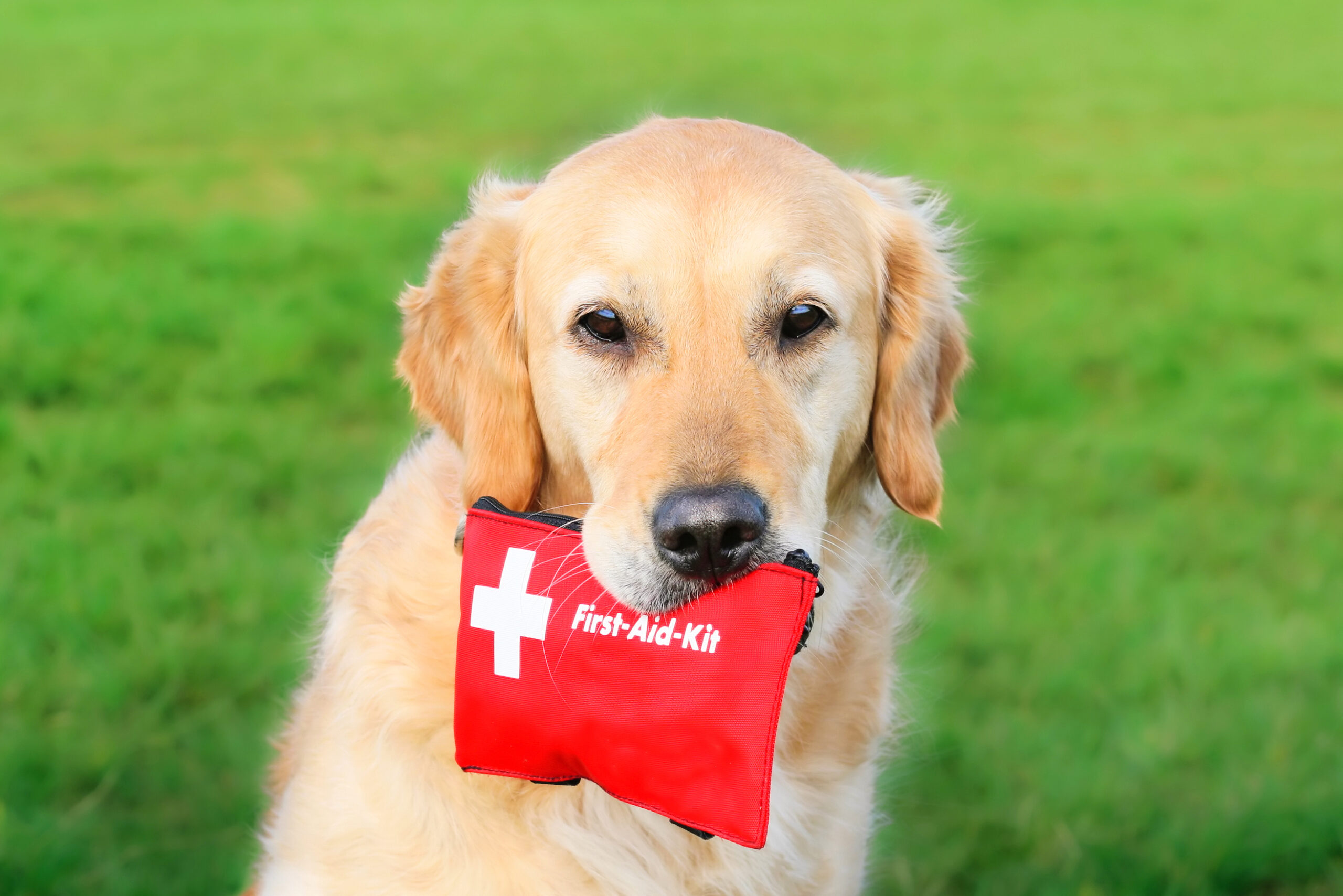
Nov 15, 2024 | By, For Pet's Sake
Emergency! The value of having a pet first-aid kit
As pet owners, we always want the best for our furry companions. While we often focus on their health, diet, and daily exercise, there’s another aspect of responsible pet ownership that often goes overlooked—being prepared for emergencies. Just like people, pets can experience accidents, sudden illnesses, or injuries at any time, whether at home or on the go. Having a dedicated pet first aid kit in both your home and car is essential to ensure you’re ready to handle minor emergencies or to stabilize your pet before professional help is available.
Why a pet first-aid kit is essential
- Immediate response to injuries
Pets are naturally curious and may accidentally injure themselves, whether by stepping on something sharp, getting into a scuffle with another animal, or encountering dangerous plants or chemicals. A pet first-aid kit allows you to quickly treat minor injuries, such as cuts, scrapes, and burns. The faster you can provide care, the less likely the injury will worsen before you’re able to reach a veterinarian, which may or may not be available at all hours or on weekends.
- Handling sudden illnesses
If your pet suddenly exhibits symptoms of illness, such as vomiting, diarrhea, or allergic reactions, a first-aid kit can help you manage the symptoms until professional help is available. Having items like antihistamines, a digital thermometer, or prescription food could be crucial as you try to mitigate the impact of the mystery illness.
- Preparation for outdoor or travel accidents
When traveling or enjoying outdoor activities like hiking or beach trips with your pet, accidents can happen far from home or a veterinary clinic. Having supplies for unexpected situations will help you respond appropriately to anything from insect bites to cuts to rough terrain.
What should a pet first-aid kit include?
Your emergency go-bag should be tailored to your pet’s specific needs and should include items to address a variety of potential emergencies. Here’s a basic guide to help you gather the materials you might need.
- Bandages and gauze to cover wounds and stop bleeding
- Antiseptic wipes or solution for cleaning wounds
- A digital thermometer for monitoring your pet’s temperature
- Tweezers and scissors for removing objects from paws or trimming fur around a wound
- Hydrogen peroxide for inducing vomiting, only if advised by a veterinarian
- Adhesive tape to secure bandages
- Pet-safe antihistamines for allergic reactions or insect stings
- Latex gloves to keep yourself clean and to avoid contaminating wounds
- Eye wash solution for cleaning debris or irritants from your pet’s eyes
- Splint materials, in case of fractures
- Emergency contact information, including your vet’s number, a local emergency animal hospital, and animal poison control.
- A portable water bowl and bottled water, in case you become stranded or your pet experiences illness due to excessive heat exposure
- A blanket or towel for wrapping an injured pet or providing warmth in shock situations
- Tick remover tool to safely remove ticks after outdoor adventures
- Pet carrier and leash to restrain your pet if they are injured or agitated
- A muzzle to prevent any biting caused by pain
Pet first-aid kits are vital for initial care, such as stopping bleeding, cleaning wounds, or monitoring symptoms, but it’s important to understand when it’s appropriate to seek professional help. If your pet shows signs of extreme pain, breathing difficulties, seizures, or any condition you cannot manage at home, seek veterinary attention immediately. Even if the situation isn’t that serious, it’s a good idea to contact a veterinarian for further guidance.
Having a pet first aid kit at home and in your car provides peace of mind. While we can’t always prevent accidents, being prepared to manage them effectively can make all the difference in your pet’s health and recovery. Take the time to assemble a kit and familiarize yourself with how to use each item. You never know when these simple tools could save your pet’s life.
Have a question about pet health? Want to become the best possible pet parent? Find helpful tips, reminders, and insight to giving your furry friend the best possible care with For Pet’s Sake! Learn more at drdevonsmith.com.

